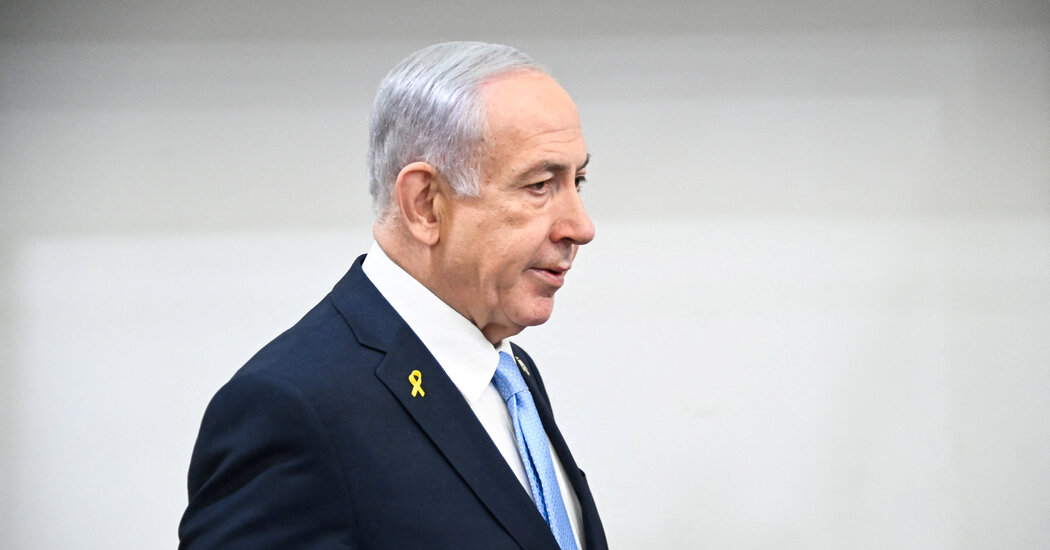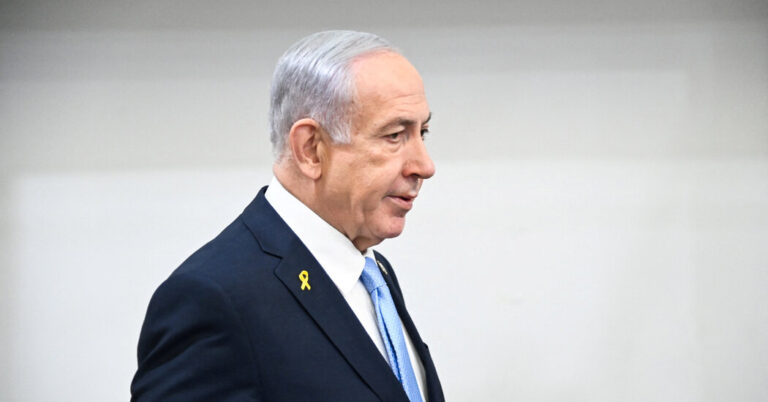Prime Minister Benjamin Netanyahu of Israel on Thursday began a visit to Hungary, confident that the European self-seated bastion of “illiberal democracy” would ignore an arrest warrant issued against him in November by the International Criminal Court.
The visit is the first of Netanyahu in a country that recognized the jurisdiction of the court, increasing the possibility, at least in theory, which could be arrested. He visited Washington to discuss Gaza’s future with President Trump in February, but the United States, like Israel, have never recognized the international court.
In Hungary, the government of Prime Minister Viktor Orban has clarified that he will ignore his obligations as part of a 1998 treatise that established the Court.
Orban invited Mr. Netanyahu to visit shortly after the court issued his arrest warrant, ensuring that “the judgment of the ICC will have no effect in Hungary and that we will not follow its terms”.
The wide propaganda machine of Hungary has tilt towards the anti -Semitic tropes in its uninterrupted defamation of George Soros, an American financier and philanthropist of Hungarian origin who is Jewish. He launched it as the sinister puppeteer in a vast global conspiracy supported by cosmopolitan and hidden forces.
But Mr. Orban, a strong supporter of Israel, embraced the first right minister of the country as a spirit affine in tune with his ethnonationalist opinions and the reverence for national sovereignty free from foreign interference.
The International Criminal Court has issued the arrest mandates for Mr. Netanyahu and his former defense minister, Yoav Gallant, accusing them of war crimes and crimes against humanity in the Gaza Striscia, giving a blow to the global position of Israel.
For Mr. Netanyahu, the visiting of Hungary offers him the opportunity to project strength abroad and the statesman at home at a time of growing opposition to his leadership both inside and outside Israel.
Traveling to Europe, Netanyahu is reporting to the world that remains widely unchanged by the arrest warrant of the Court, although the conduct of the Israel war in Gaza has been reported by many European governments. He is also reporting to critics in Israel, where he is invoked in a growing list of domestic crises, which maintains his international stature and which the activity continues as usual despite the arrest of this week of two of his helpers.
Amnesty International condemned the visit to Hungary as “a cynical effort to undermine the ICC and its work”, describing it as “an insult to the victims of these crimes that are looking for the court for justice”. The invitation of Hungary, he added, “shows contempt for international law”.
For Mr. Orban, isolated within the European Union, welcoming the Israeli Prime Minister in difficulty of the International Court offers the opportunity to put himself in the spotlight and attract Washington’s attention. President Trump has shown some apparent interest in Hungary since he entered in charge even if he was for a long time an admirer of Mr. Orban.
Like Mr. Netanyahu, Orban faces a series of domestic problems, including Hungary who has the highest inflation rate in the European Union and the country’s departure opposition movement – led by an ex Lealist of Orban – enjoying an increase in support.
Before the November elections, Mr. Trump often praised Mr. Orban as a “great leader”, but did not invite him to the inauguration. Hungary said that this was because no foreign leader was invited, but many participated, including the Italian Prime Minister, Giorgia Meloni, a rival of Orban for the leadership of the European political forces.
Trump, a ferocious critic of the Court, in February signed an executive order that imposes sanctions to the International Court, swearing to impose “tangible and significant consequences” to the people who work on investigations considered to threaten the national security of the United States and Israel.
Netanyahu has denounced loudly corruption, fraud and other accusations against him in Israel as an effort by the judiciary to make the voters’ will derail. In the same way, Orban has often condemned what he sees as a judicial overcoming by the European courts who pronounced themselves against Hungary for his violations of the rules of the European Union.
“We have always rebelled by judicial activism,” said Orban during a November leader of European leaders in Budapest, the capital of Hungary.
In 2001 Hungary ratified the treaty that establishes the international criminal court during the first period of Orban as Prime Minister, but his parliament has never incorporated its terms in the country’s internal legal code.
The head of the staff of Orban, Gergely Gulyas, said last month that this omission freed Hungary from any obligation to act on the sentences by the court. He indicated that Hungary was taking into consideration the possibility of withdrawing from the court, but said that no decision had not yet been made.
Patrick Kingsley Reports contributed by Jerusalem.





